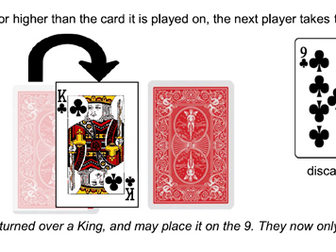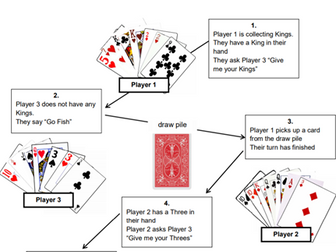How to play 'Shed'
<p>A visually supported guide for how to play the card game ‘Shed’. This resource uses appropriate language for KS2 and above, and was written for KS4 and KS5 pupils in a special school. Vocabulary is simple and defined, and the processes of the card game are shown in easy to understand visual sequences, using card faces. The resource was designed by a Specialist Speech and Language Therapist to enable students, with a wide range of cognitive abilities, to enhance their social skills and access structured activities at break times.</p>
<p>Learning a card game gives students a life long skill and interest. Card games teach patience and social skills, and give children a quick way to start and maintain interaction with a wider range of students. Teaching structured games can help autistic students to develop friendships, and to make the most of break times - which can often be overwhelming!</p>
<p>Shed is a slightly more complex game with a few rules, but has been easily picked up by most of the interested pupils in my school. Once they have learned the basic rules, they have fun experimenting with strategies and predicting what will happen as a result of their play. This improves turn taking, memory and prediction skills and logical reasoning.</p>

